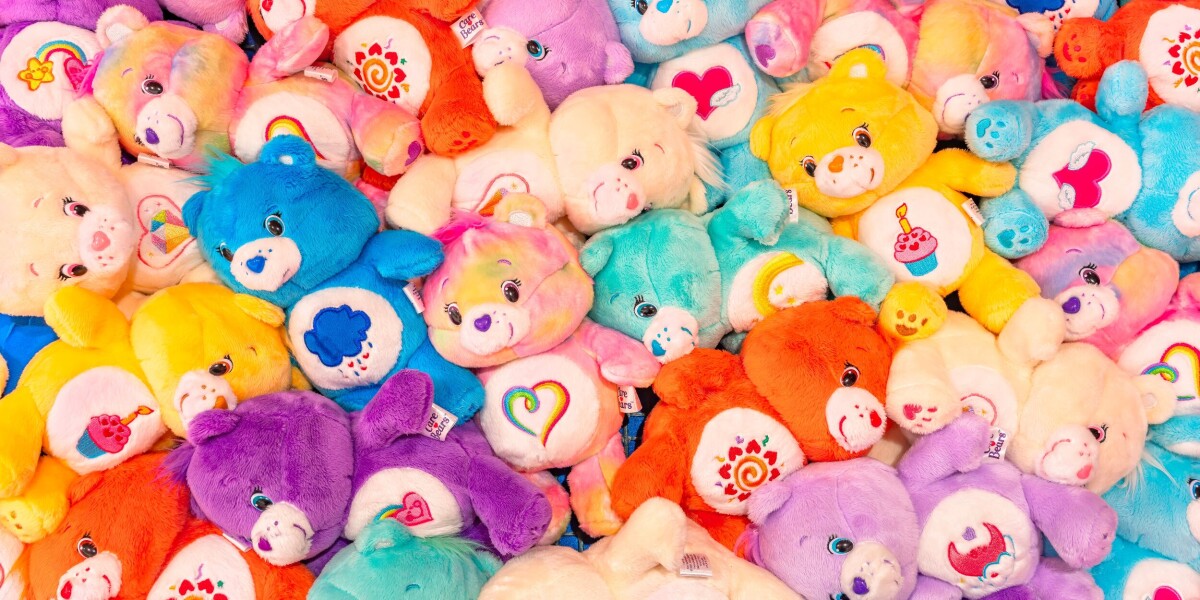Learning french: when and why would we describe someone as un bisounours?
Learning french: when and why would we describe someone as un bisounours?"
- Select a language for the TTS:
- UK English Female
- UK English Male
- US English Female
- US English Male
- Australian Female
- Australian Male
- Language selected: (auto detect) - EN
Play all audios:
THIS CUTE CULTURAL REFERENCE IS ACTUALLY USED TO CRITICISE Care Bears: the cartoon team of rainbow teddies with adorable names to match their magical powers, spreading positivity to
counteract evil. We look at why being called a Bisounours in France has developed from a cute compliment to a cruel criticism. WHAT DOES ÊTRE UN BISOUNOURS MEAN? Être un Bisounours
literally translates as: to be a Care Bear. If you describe someone as being a Bisounours, you are implying they are very kind and loving but often naively optimistic - existing in a utopia
of magical joy where no evil exists. A variation of this expression is: vivre dans le monde des Bisounours (to live in the land of Care Bears), or on n’est pas chez les Bisounours (we are
not in the land of Care Bears). Despite having positive connotations on the surface, this phrase is actually more commonly used sarcastically to criticise or discredit a person’s
rose-tinted outlook, particularly in a political context. Read also: Learning French: the origins and meaning of être Gros-Jean comme devant WHAT ARE THE ORIGINS OF ÊTRE UN BISOUNOURS? The
origins of this phrase stem from the French translation of the Care Bears brand. The brand name is a contraction of bisou (kiss) and nounours (teddy bears). The Care Bears were popular in
the 1980s, particularly due to the cartoon television show. Before long, every child wanted a rainbow teddy bear to match the magical ones seen on screen. People gradually began to use the
angelic nature of the brand to criticise or mock those with an idealistic world view, suggesting they should gain consciousness of life’s darker aspects. Read also: Learning French: the
origins and meaning of fada WHEN DO YOU SAY ÊTRE UN BISOUNOURS? Use this saying when describing someone who is cute, innocent and kind: * Tu vas adorer mon petit frère, c'est un petit
Bisounours. - You are going to love my little brother, he is a sweetie pie. It can also be used with more critical and sarcastic undertones to suggest someone is naively optimistic: Read
also: Learning French: when and why do we say être dans de beaux draps? TO WHOM DO YOU SAY ÊTRE UN BISOUNOURS? It is colloquial language and can be used with a range of people in formal or
informal contexts. Pay attention to your tone of voice when using this phrase as it can come across as being mocking and critical.
Trending News
Most Viewed Business News Articles, Top News Articles | The Economic TimesYou can search EconomicTimes.com for similar content, browse our most read articles, or go to our Home PageDonald Trump'...
Cellular phones and shantiesTHE dawning of the free market era inRussia has plunged Siberia into a vortexof contradictions. Although the regionis a ...
Chelsea vs tottenham on tv: what channel is the match on?Chelsea boss Maurizio Sarri revealed he is undecided over whether or not to select Kepa Arrizabalaga against Tottenham. ...
An optimized antigen–protein fusionThe fusion of an immunogenic peptide and the protein transthyretin protects the peptide antigen from proteolytic degrada...
The StandardThe Standard is a marketing name for Standard Insurance Company (Portland, Oregon), licensed in all states except New Yo...
Latests News
Learning french: when and why would we describe someone as un bisounours?THIS CUTE CULTURAL REFERENCE IS ACTUALLY USED TO CRITICISE Care Bears: the cartoon team of rainbow teddies with adorable...
Haspin regulates ras localization to promote cdc24-driven mitotic depolarizationABSTRACT Cell polarization is of paramount importance for proliferation, differentiation, development, and it is altered...
Japanese scientists plan mmr alternativeAccess through your institution Buy or subscribe The Japanese government has approved a five-year grant, with ¥56 millio...
The page you were looking for doesn't exist.You may have mistyped the address or the page may have moved.By proceeding, you agree to our Terms & Conditions and our ...
Author correction: immune cell profiling of covid-19 patients in the recovery stage by single-cell sequencingCorrection to: _Cell Discovery_ (2020) 6:31 https://doi.org/10.1038/s41421-020-0168-9 Published online 04 May 2020 Follo...
